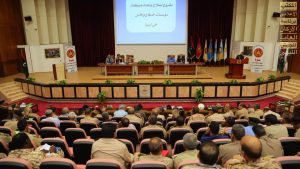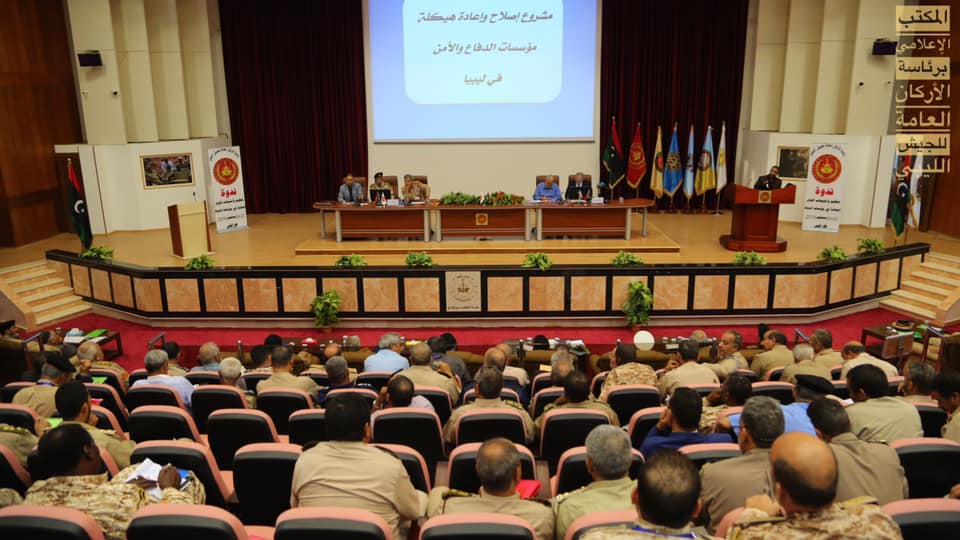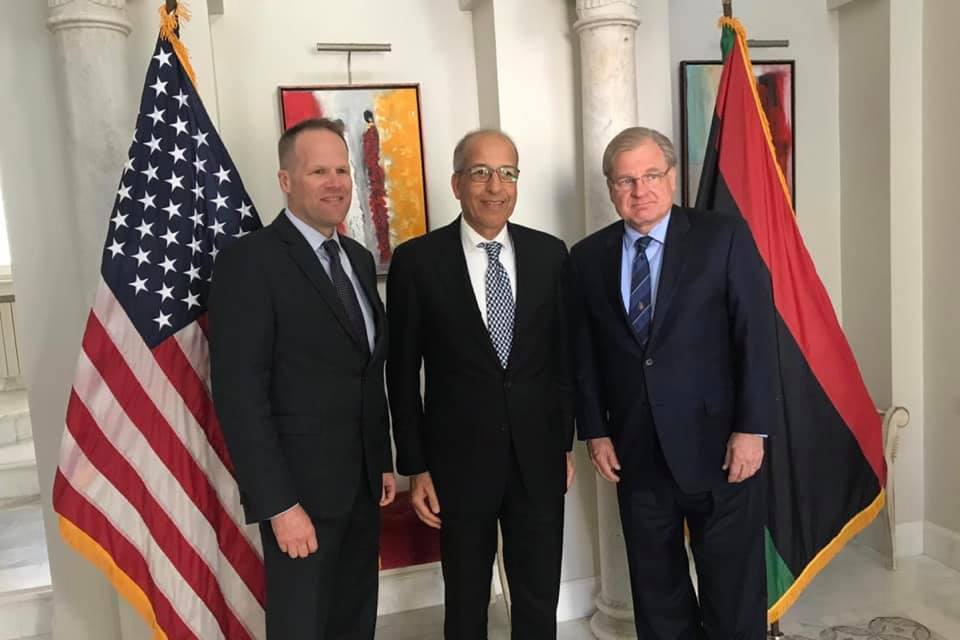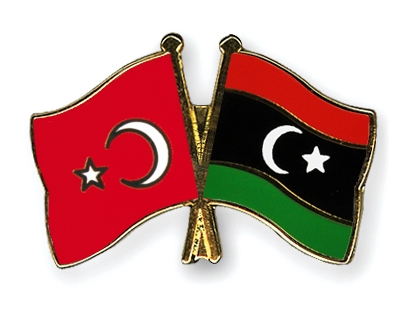By Sami Zaptia.

London, 26 September 2019:
The seminar held on 23 to 24 September in Tripoli by the Tripoli-based General Staff of the Libyan Army, aligned to the internationally-recognized government in Tripoli led by Faiez Serraj, made 15 main recommendations on the disarmament, demobilization and reintegration (DDR) of Libya’s militias.
The seminar was entitled “Organizing and Absorbing Supporting Forces in State Institutions”. “Absorbing supporting forces” is Serraj government speak for DDR of militias.
It will be recalled that efforts had been underway since the summer of 2012 under the Al-Kib prime ministership to implement some form of DDR. The subject was taken up more actively by the Ali Zeidan government but he refused to jhand over the agreed budget.
In 2013 the parliament (General National Congress-GNC) agreed to send 30,000 (thirty thousand) Libyans abroad for study and training. It was proposed that 20,000 be sent abroad for training courses and the remaining 10,000 be sent on study courses. A total budget worth LD 10 billion (US$ 7.8 billion) was to be set aside with three billion earmarked for financing study abroad while 5 or 7 billion would be used to support and encourage SMEs.
In 2013 tens if not hundreds of thousands of former militiamen (thuwar) were surveyed and organized in a nationwide database by the Warriors Affairs Commission (WAC).
Libya Herald had been informed at the time by senior sources at WAC that it had put forward a proposal to the Al-Kib government in 2012 for a comprehensive training and study plan for all those militiamen who had expressed a desire to do so.
The WAC plan had included varying levels of studies and training locally and abroad for militiamen depending on their qualifications and capabilities. This plan was estimated at the time to be in the region of half a billion Libyan dinars. However, the Al-Kib government did not activate the plan.
With regards to the SMEs, ever since the days of the former Qaddafi regime and during the time when Mahmoud Jibril was head of the Economic Development Board (EDB), the government had been threatening to allocate half a billion Libyan dinars to support the SMEs via local commercial banks and guaranteed by the state via the Loans Guarantee Fund.
In practice, nothing ever materialised.
The DDR seminar made the following 15 recommendations:
1-Confirmation of building a Libyan Army and security institutions on strong foundations based on loyalty to God and the nation, in line with the creation of a civilian state and the peaceful transfer of power.
2-Amend the Presidential Guard (the actual small non-militia Libyan Army) law with regards to integrating the actual militias (who had actually participated in fighting as opposed to those who joined later to take advantage of funds offered to fighters).
3-Demand that the Presidency Council create a committee of experts to hold workshops with various organizers of proposed programme (at the seminar) and other organizers of other proposals to reach out to militia commanders to feedback on these proposals which should be presented to the Presidency Council to implement by decree within a month of the end of the conclusion of these workshops.
4-To create a joint working group between the Ministry of Interior and the Army to carry out a survey of militias in order to create a database of militias and avoid previous errors (probably referring to avoiding the previous error in creating the existing database created by the Warriors Affairs Commission (WAC) whereby many non-fighters joined it falsely claiming they were militias – again to take advantage of payments).
5-Calling on all executive branches of the Libyan state to pass the necessary decrees within their specialities, to help integrate militias into them.
6-All state institutions should play their part towards militias by supporting them morally and financially and put in place programmes and processes to ensure militias get their urgent and long-term moral and financial rights and include them into their organizational charts (employees) according to their qualifications.
7-On the executive and legislature to guarantee the rights of the war injured and martyrs’ families and to follow up on this directly.
8-On the Ministry of Labour to come up with a training programme with countries treating war injured during their stay there so as to train and rehabilitate them during their treatment stay, within the capabilities of those countries in order that they can be employed in state institutions when they return to Libya.
9-To benefit from the plans made by the Libyan Programme for Reintegration and Development (LPRD, formerly WAC) with regards to its SME and other proposals (Which prime minister Zeidan failed to provide a budget for fearing corruption and the money going to the Islamists who he felt dominated the political and militia scene at the time).
10-Preparing the various Libyan institutions so that they are able to reintegrate militias within their employee cadres especially the defence and security institutions and identifying their main aims, and benefiting from previous experiences in reintegrating militias.
11-Reactivating and supporting of military and security educational and training centres, institutions and scientific research centres and opening the opportunity for militiamen who wishing to enrol – subject to existing enrolment conditions.
12-Creation of working group to put in place processes, programmes and plans to raise awareness of militias of the importance of their reintegration into state institutions and of their national duties to help the nation arrive at discipline and order and progressive construction, and to close the door of internal and external interference by the other party (Hafter) to stop it using the pretext of fighting of terrorists and militias etc.
13-Call on the Ministries of Defence, Interior and General Staff to find a strong, unified media narrative for internal and external use that represents it in a professional and committed manner that strengthens the voice of the civilian state.
14-Study the experiences of states that had experienced Libya’s current experience and benefit from the solutions and procedures that were taken in reintegrating and rehabilitation of fighters.
15-Creation of a committee by the Chiefs of Staff to follow up on these recommendations.
https://www.libyaherald.com/2019/09/21/tripoli-based-libyan-army-to-hold-seminar-on-absorbing-militias/
https://www.libyaherald.com/2015/07/15/lprd-spends-ld-69-million-reintegrating-70000-ex-fighters/
https://www.libyaherald.com/2014/03/18/wac-launches-new-name-and-logo-steps-up-education-programmes/
https://www.libyaherald.com/2013/10/23/south-korea-to-build-vocational-training-centre-in-benghazi/
https://www.libyaherald.com/2013/09/22/malaysian-university-to-train-500-thuwar-next-year/
https://www.libyaherald.com/2013/05/02/ld-3-28-billion-for-41000-students-abroad-ld-7-billion-for-sme-large-jv-projects/
https://www.libyaherald.com/2013/04/25/gnc-approves-ld-10-billion-for-30000-to-train-and-study-abroad/
https://www.libyaherald.com/2015/10/03/government-climbs-down-over-lprd-board-firings/
https://www.libyaherald.com/2012/11/18/conference-held-on-libyan-warriors-economic-and-social-vision/











